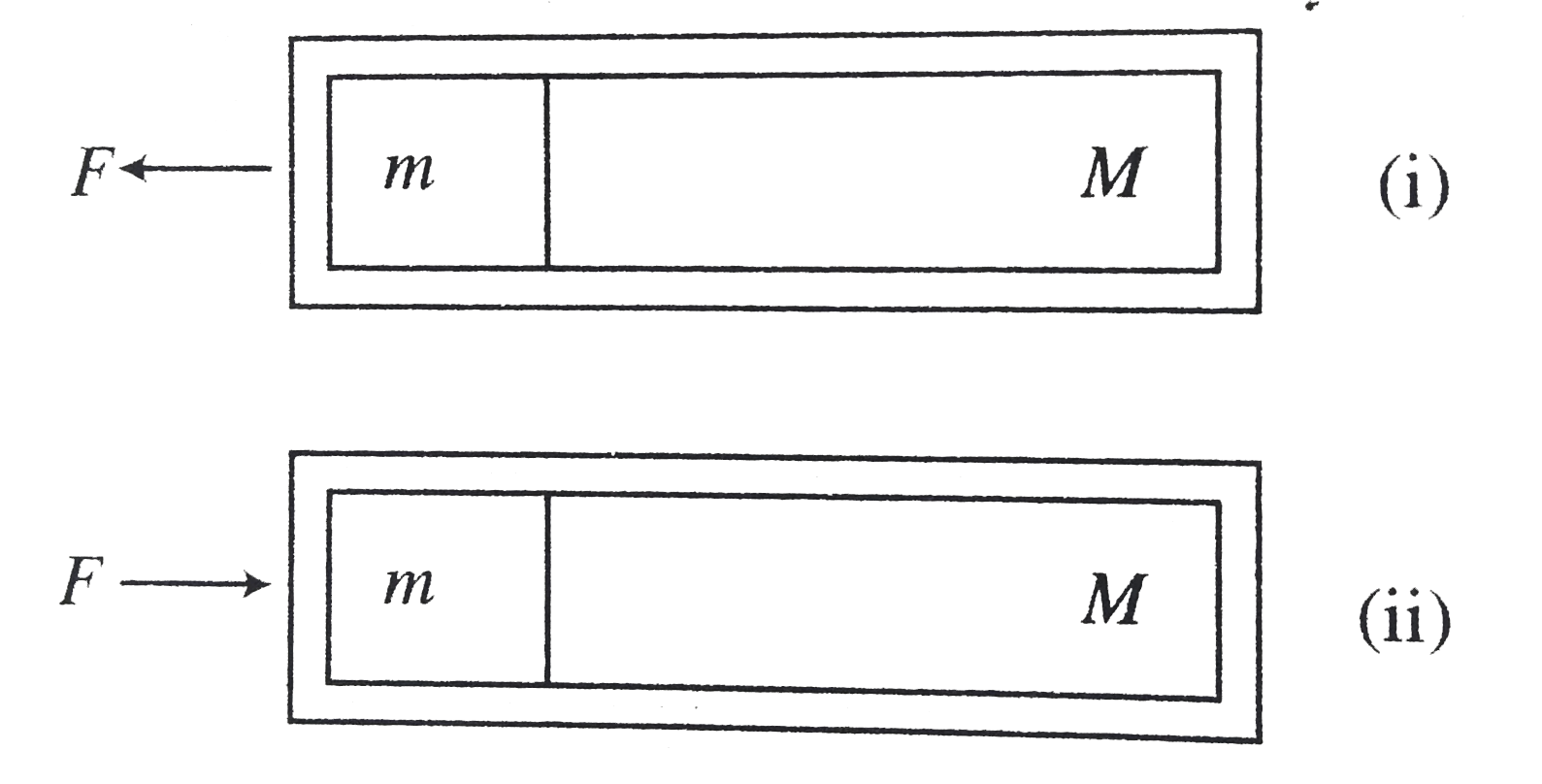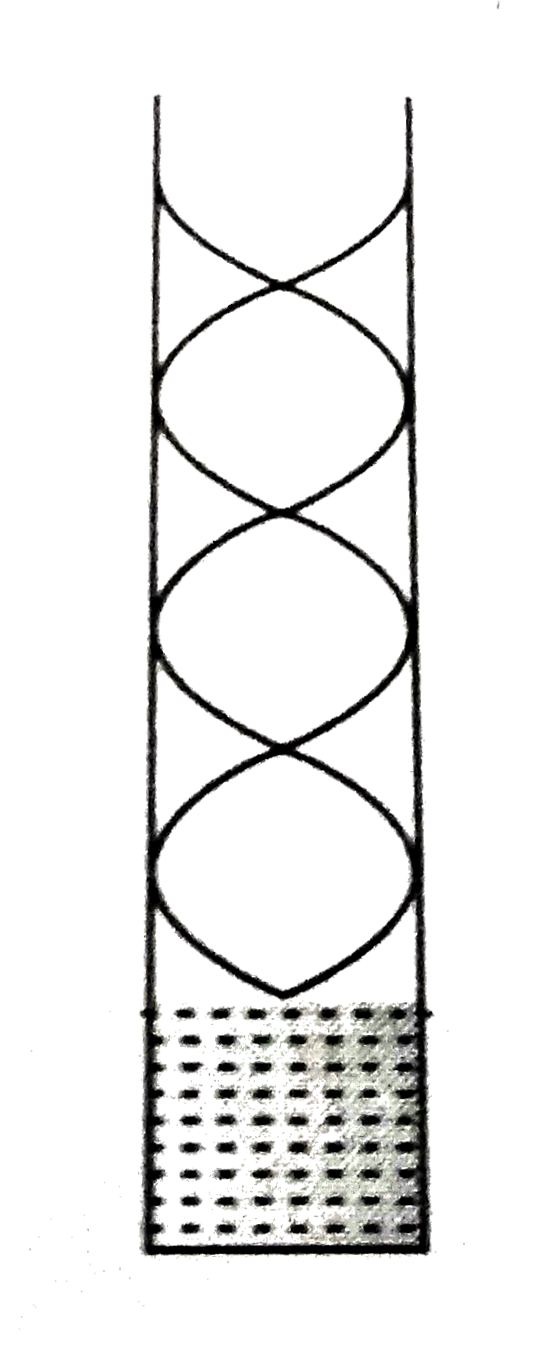Water enters through end A with a speed v1 and leaves through end B with a speed v2 of cylindrical tube AB. The tube is always completely filled with water. In case I the tube is horizontal, in case II it vertical with the end A upward and in case III it is vertical with the end B upward. We have v1=v2for
case I
case II
case IlI
each case
The correct Answer is:D
This happens in accordance with equation of continuity and this equation was derived on the principle of conservation of mass and it is true in every case, either tube remain horizontal or vertical.
Topper's Solved these Questions
Similar Questions
Water enters into a smooth horizontal tapering tube with a speed 2 m/sec and emerges out of the tube with a speed 8 m/sec . Find the ratio of the radii of cross sections of the tube at these two ends.
View SolutionA block of mass m is placed in contact with one end of a smooth tube of mass M. A horizontal force F acts on the tube in each case (i) and (ii). Then,

View Solution
Knowledge Check
Water enters through end A with a speed v1 and leaves through end B with a speed v2 of cylindrical tube AB. The tube is always completely filled with water. In case I the tube is horizontal, in case II it vertical with the end A upward and in case III it is vertical with the end B upward. We have v1=v2for
Acase IBcase IICcase IlIDeach caseWater is flowing through a tube of radius r with a speed v. If this tube is joined to another tube of radius r/2, what is the speed of water in the second tube?
Av/4Bv/2C2vD4vA cylindrical tube open at both the ends has a fundamental frequency of 390 Hz in air. If 14 th of the tube is immesed vertically in water the fundamental frequency of air column is
A260 HzB130 HzC390 HzD520 Hz
A cylindrical tube open at both ends, has a fundamental frequency F in air. The tube is dipped vertically in water so that half of it is in water. The fundamental frequency of air column is now
View SolutionA cylindrical tube open at both ends, has a fundamental frequency F in air. The tube is dipped vertically in water so that half of it is in water. The fundamental frequency of air column is now
View SolutionA cylindrical tube, open at the both ends, has a fundamental frequency f in air . The tube is dipped vertically in water so that half of it is in water . The fundamental frequency of the air column is now-
View SolutionA horizontal jet of water coming out of a pipe of area of cross-section 20cm2 hits a vertical wall with a velocity of 10ms−1 and rebounds with the same speed. The force exerted by water on the wall is .
View SolutionOne of the modes of resonance in a tube containing water at one end has been shown. The tube in the present case is in

View Solution
